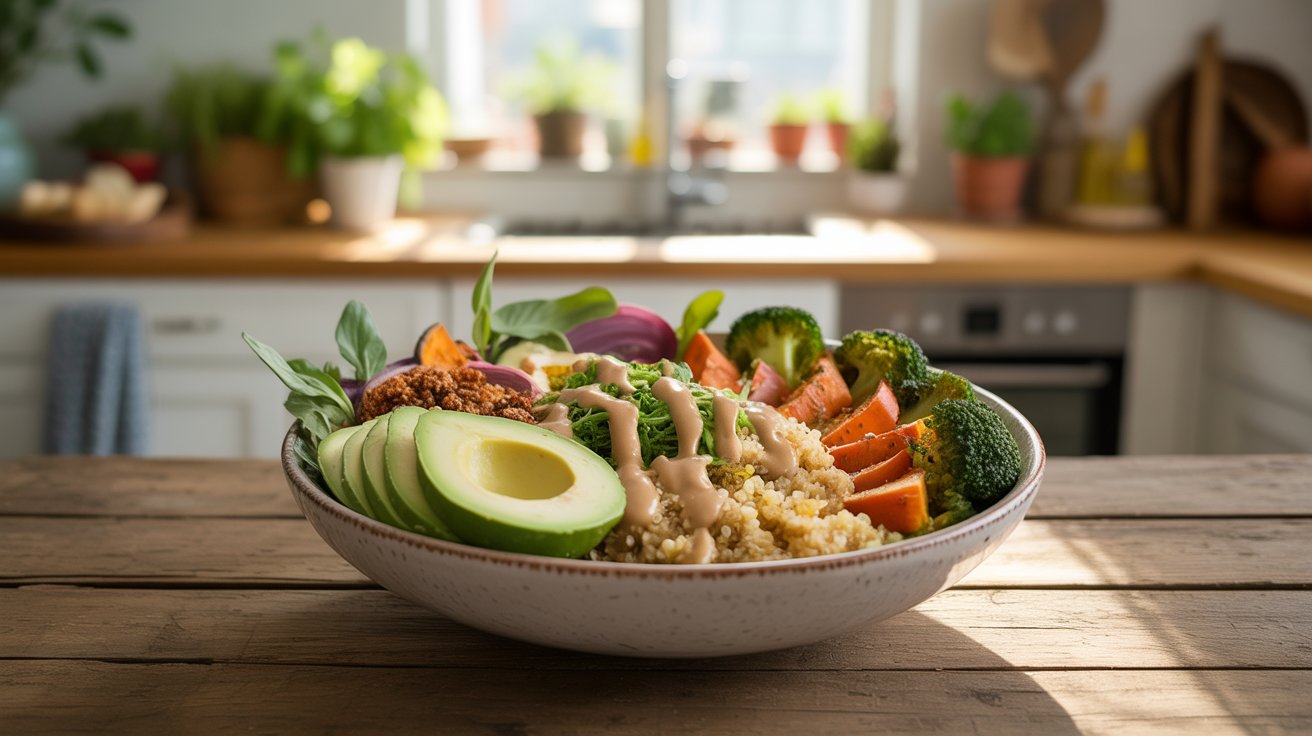Plant-based diets, emphasizing fruits, vegetables, grains, and legumes while minimizing animal products, have surged in popularity for their health, environmental, and ethical benefits. From flexitarian to vegan, these diets offer flavorful, sustainable ways to eat, appealing to both wellness enthusiasts and eco-conscious cooks.
Health Benefits of Plant-Based Eating
Plant-based diets reduce risks of chronic diseases. A 2019 study in the American Journal of Clinical Nutrition found vegan diets lower heart disease risk by 22% due to reduced cholesterol and saturated fat intake. High fiber from legumes and vegetables aids digestion and stabilizes blood sugar, helping manage diabetes. Antioxidants in berries and leafy greens combat inflammation, boosting overall wellness. Even partial shifts, like meatless Mondays, yield benefits without requiring full veganism.
Easy Plant-Based Recipes
Try a lentil curry: sauté 1 onion, 2 garlic cloves, and 1 tbsp ginger; add 1 cup red lentils, 1 can coconut milk, 1 can diced tomatoes, 1 tsp turmeric, and 1 tsp cumin; simmer 20 minutes; serve with rice. For lunch, make a chickpea salad: mash 1 can chickpeas with 2 tbsp tahini, 1 tbsp lemon juice, diced cucumber, and parsley; spread on whole-grain bread. A breakfast smoothie bowl blends 1 banana, 1 cup frozen berries, 1 cup almond milk, and tops with granola and chia seeds. These recipes are quick, affordable, and flavorful.
Transitioning to Plant-Based
Start gradually: replace one meat meal weekly with a plant-based option, like tofu stir-fry (marinate tofu in soy sauce, stir-fry with broccoli and bell peppers). Stock plant-based proteins—lentils, black beans, tempeh—at grocery stores or bulk bins. Nutritional yeast adds cheesy flavor to vegan dishes. Ensure nutrient balance: combine iron-rich spinach with vitamin C-rich citrus for absorption, and supplement B12 (found in fortified plant milks). Online resources like Minimalist Baker offer beginner-friendly recipes.
Environmental and Ethical Impact
Plant-based diets are eco-friendly. Producing beef emits 60 kg CO2 per kg consumed, versus 0.5 kg for lentils, per FAO data. They also use less water—15,000 liters for 1 kg beef versus 1,250 for rice. Reducing animal product consumption supports biodiversity by easing pressure on deforested lands. Ethically, plant-based eating aligns with animal welfare, reducing demand for factory farming. Even cutting meat intake by 50% makes a significant impact, per a 2022 Oxford study.
Overcoming Common Hurdles
Plant-based eating can seem restrictive or expensive. Explore affordable staples like beans ($1 per pound) and seasonal produce. Batch-cook grains like quinoa to save time. Social settings? Bring a vegan dish, like hummus with veggie sticks, to share. Crave meaty textures? Try jackfruit for pulled “pork” or seitan for hearty stews. Online communities like r/veganrecipes on Reddit provide support and ideas. With planning, plant-based diets are accessible and satisfying.
Conclusion: Plant-based diets offer health, environmental, and ethical benefits, with versatile recipes to suit all tastes. Whether you go fully vegan or adopt flexitarian habits, these diets transform how you eat and live, fostering wellness and sustainability. Start with a simple recipe and explore the vibrant world of plants.
